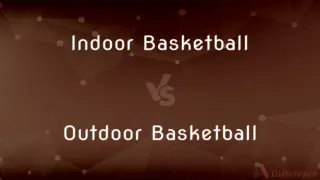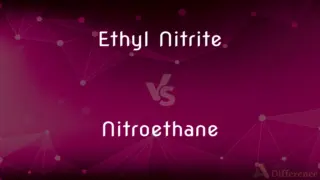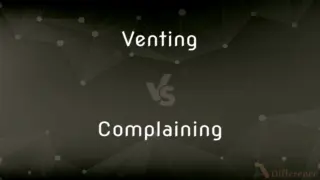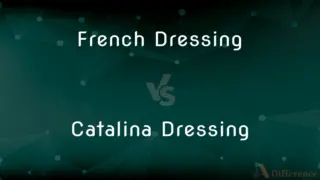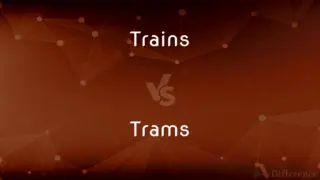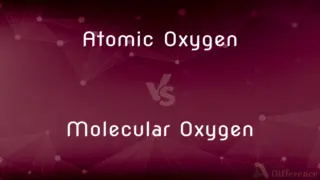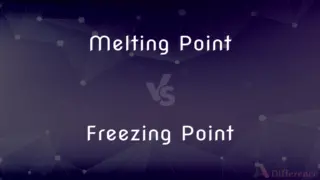Capacitor vs. Resistor — What's the Difference?
By Tayyaba Rehman — Updated on October 3, 2023
capacitor stores and releases electrical energy, while a resistor opposes or reduces electric current flow.

Difference Between Capacitor and Resistor
Table of Contents
ADVERTISEMENT
Key Differences
Capacitors and resistors are fundamental electronic components but serve different purposes. A capacitor is a device that can store electrical energy in an electric field. This energy storage capability allows capacitors to smooth voltage fluctuations or couple AC signals in circuits. In contrast, a resistor is a component designed to resist the flow of electric current. Its primary function is to limit or set the current flow in a circuit to a desired level.
While capacitors can change their behavior based on the frequency of the applied signal, resistors maintain a consistent opposition to current regardless of frequency.
However, both capacitors and resistors come in various forms and values, allowing them to be tailored to specific applications. It's essential to understand that while capacitors temporarily store energy, they don't dissipate it, whereas resistors convert electrical energy into heat.
Comparison Chart
Function
Stores and releases electrical energy
Opposes or reduces electric current flow
Energy Handling
Stores energy without dissipating
Converts electric energy to heat
ADVERTISEMENT
Response to Signal
Behavior varies with signal frequency
Offers consistent resistance regardless of frequency
Physical Form
Often cylindrical or flat disks
Typically cylindrical with colored bands indicating resistance value
Use in Circuits
Used for filtering, coupling, and voltage smoothing
Used to limit or set current, voltage division
Compare with Definitions
Capacitor
An electronic component storing electrical energy.
The circuit uses a capacitor to stabilize the voltage.
Resistor
A component designed to resist electric current.
The resistor limits the current to protect the LED.
Capacitor
Useful for filtering and smoothing in power supplies.
A capacitor in the power supply ensures consistent voltage output.
Resistor
Often marked with colored bands indicating resistance.
The color bands on the resistor show it's a 1kΩ resistor.
Capacitor
Can be polarized or non-polarized.
Ensure the polarized capacitor is correctly oriented in the circuit.
Resistor
Used to control the flow of electricity in circuits.
By changing the resistor value, we can adjust the circuit's behavior.
Capacitor
A device that holds a charge between two conductive plates.
When the button is pressed, the capacitor releases its stored energy.
Resistor
Converts electrical energy to heat.
The resistor became warm due to the current flowing through it.
Capacitor
Couples AC signals between stages.
The capacitor allows AC signals to pass while blocking DC.
Resistor
Can set or divide voltage in a circuit.
A voltage divider uses two resistors to produce a specific voltage output.
Capacitor
A capacitor is a device that stores electrical energy in an electric field. It is a passive electronic component with two terminals.
Resistor
A resistor is a passive two-terminal electrical component that implements electrical resistance as a circuit element. In electronic circuits, resistors are used to reduce current flow, adjust signal levels, to divide voltages, bias active elements, and terminate transmission lines, among other uses.
Capacitor
A device used to store an electric charge, consisting of one or more pairs of conductors separated by an insulator.
Resistor
A device used to control current in an electric circuit by providing resistance.
Capacitor
An electric circuit element typically consisting of two metallic plates separated and insulated from each other by a dielectric, used to store charge temporarily or to filter signal frequencies. Also called condenser.
Resistor
One who resists, especially a person who fights against an occupying army.
Capacitor
(electronics) An electronic component capable of storing electrical energy in an electric field; especially one consisting of two conductors separated by a dielectric.
Resistor
(electronics) An electric component that transmits current in direct proportion to the voltage across it.
Capacitor
A device used in electronic circuits to hold electrical charge, consisting of two conducting plates separated by a nonconducting (dielectric) medium; it is characterized by its capacitance.
Resistor
An electrical device that resists the flow of electrical current
Capacitor
An electrical device characterized by its capacity to store an electric charge
Common Curiosities
How does a resistor affect electric current?
A resistor opposes or reduces the flow of electric current in a circuit.
Can capacitors release the energy they store?
Yes, capacitors can release the stored energy when required by the circuit.
Do resistors store energy like capacitors?
No, resistors don't store energy; they convert it into heat.
Why are capacitors used in power supplies?
Capacitors are used to smooth out voltage fluctuations in power supplies.
What is the primary function of a capacitor?
A capacitor's primary function is to store and release electrical energy.
What happens if you connect a resistor incorrectly?
Most resistors are not polarized, so orientation doesn't matter, but incorrect resistance value can affect circuit operation.
Can a capacitor block DC signals?
Yes, capacitors can block DC while allowing AC signals to pass.
Can capacitors be damaged if installed backward?
Yes, polarized capacitors can be damaged if installed with incorrect polarity.
What's the use of colored bands on resistors?
Colored bands on resistors indicate their resistance value and tolerance.
Why might a resistor become hot in a circuit?
A resistor may become hot if it's dissipating more power than it's rated for.
Share Your Discovery

Previous Comparison
MST vs. EST
Next Comparison
Fervor vs. FervourAuthor Spotlight
Written by
Tayyaba RehmanTayyaba Rehman is a distinguished writer, currently serving as a primary contributor to askdifference.com. As a researcher in semantics and etymology, Tayyaba's passion for the complexity of languages and their distinctions has found a perfect home on the platform. Tayyaba delves into the intricacies of language, distinguishing between commonly confused words and phrases, thereby providing clarity for readers worldwide.














